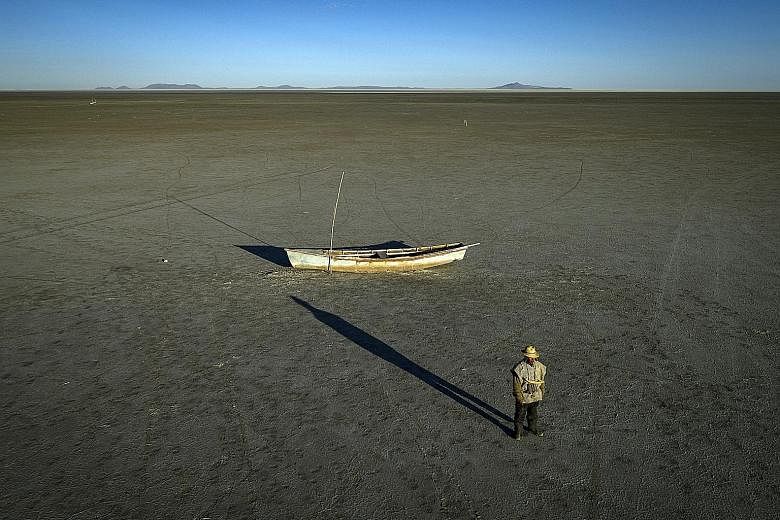LLAPALLAPANI (Bolivia) • The water receded and the fish died. They surfaced by the tens of thousands, belly up, and the stench drifted in the air for weeks. The birds that had fed on the fish had little choice but to abandon Lake Poopo, once Bolivia's second largest but now just a dry, salty expanse.
Many of the Uru-Murato people, who had lived off its waters for generations, also left, joining a new global march of refugees fleeing not war or persecution, but climate change.
"The lake was our mother and our father," said Mr Adrian Quispe, one of five brothers who were working as fishermen and raising families in Llapallapani. "Without this lake, where do we go?"
Lake Poopo basically vanished in December. The disappearance threatens the very identity of the Uru-Murato people, the oldest indigenous group in the area. They adapted over generations to the conquests of the Inca and the Spanish, but seem unable to adjust to the abrupt upheaval climate change has caused.
Only 636 Uru-Murato are estimated to remain in Llapallapani and two nearby villages.
Since the fish died in 2014, scores of residents have left to work in lead mines or salt flats up to 320km away; those who stayed behind scrape by as farmers or survive on what used to be the shore.
The lake has long been vulnerable. It was 3,700m above sea level in the dry Bolivian high plains. Decades of water diversion and cyclical El Nino droughts had brought it to the brink many times over the years. On average, it has warmed 0.23 deg C in each decade since 1985.
Ecologist Milton Perez of Oruro Technical University said scientists had known for decades that Lake Poopo fit the profile of what he called a dying lake. But the prognosis was in centuries, not years.
"We accepted the lake was going to die someday. Now isn't its time."
Lake Poopo is one of several lakes worldwide that are vanishing because of human causes.
California's Mono Lake and Salton Sea were diminished by water diversions; lakes in Canada and Mongolia are jeopardised by rising temperatures.
NEW YORK TIMES

